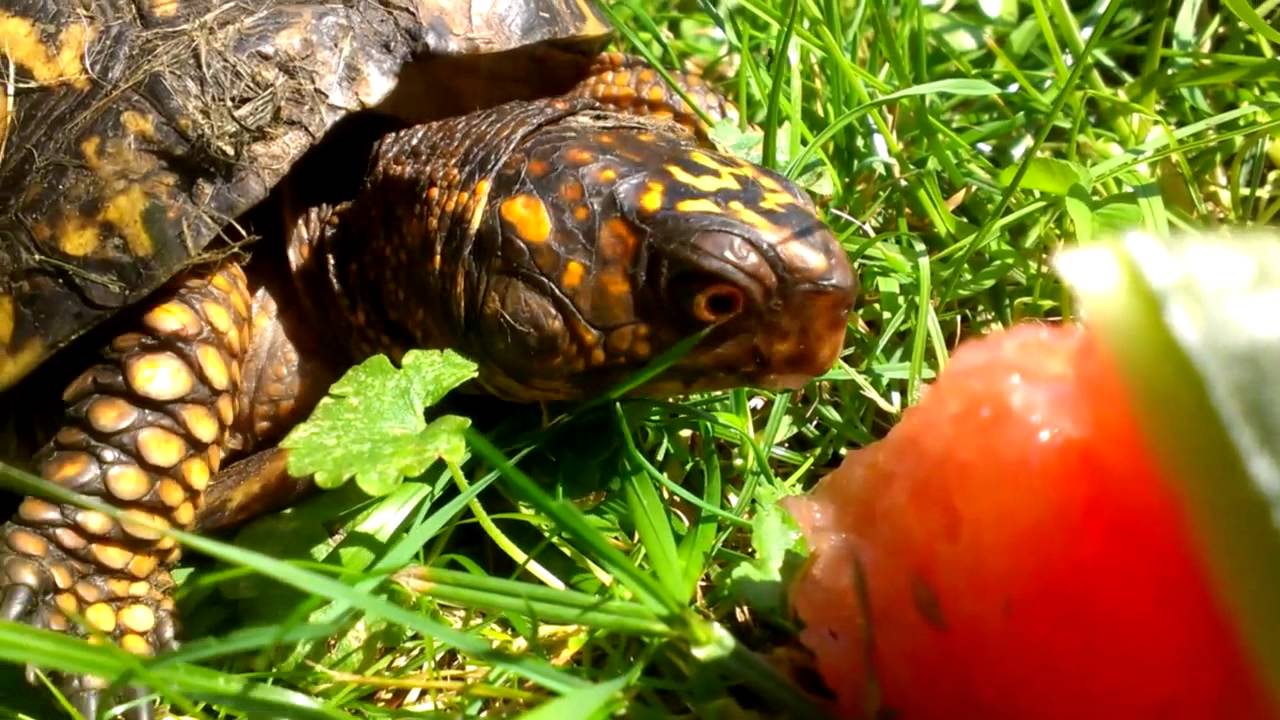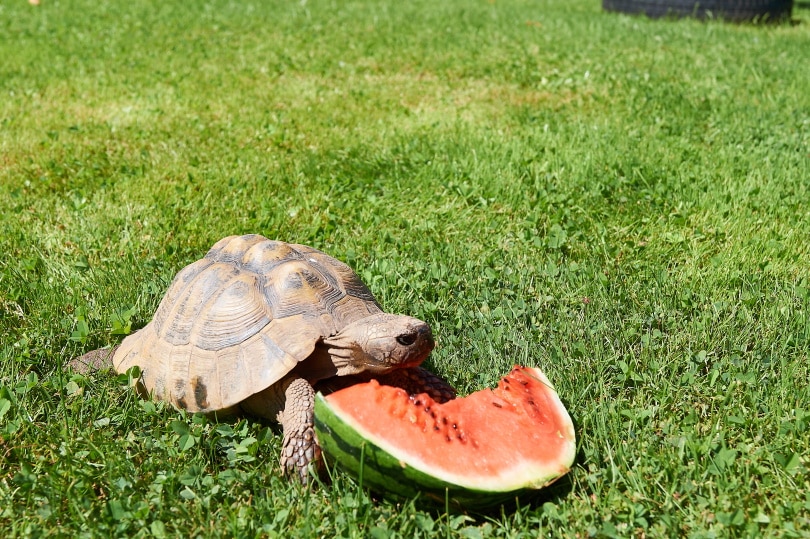Watermelons are a popular summer fruit loved by many, but can turtles also enjoy this juicy treat? In this article, we will explore whether turtles can eat watermelon and discuss the potential benefits and risks associated with feeding them this fruit.

Introduction
Turtles are fascinating creatures known for their diverse diets. While they primarily consume a variety of plants, some turtles also incorporate small insects, fish, and even carrion into their meals. As omnivores, turtles have the ability to digest a wide range of foods. However, when it comes to watermelon, there are a few factors to consider before offering it to your shelled friend.
Can Turtles Safely Consume Watermelon?
The short answer is yes, turtles can eat watermelon. Watermelon is a safe and nutritious fruit that can be included in a turtle’s diet occasionally. However, it is important to remember that moderation is key. Watermelon should not be the primary source of nutrition for turtles, but rather a tasty and refreshing treat.
Nutritional Benefits of Watermelon for Turtles
Watermelon is not only hydrating but also packed with essential vitamins and minerals. It is rich in vitamin C, which helps boost the immune system of turtles, and contains vitamin A, which promotes healthy eyesight. Additionally, watermelon is a good source of dietary fiber, which aids in digestion for turtles.
Feeding Watermelon to Turtles: Dos and Don’ts
While watermelon can be a healthy addition to a turtle’s diet, there are a few guidelines to follow to ensure their well-being:
-
Choose ripe watermelon: Opt for ripe watermelons that are sweet and juicy. Avoid feeding turtles unripe or overripe watermelons, as they may cause digestive issues.
-
Remove seeds and rind: Before offering watermelon to your turtle, make sure to remove all seeds and the tough outer rind. These parts can be difficult for turtles to digest and may pose a choking hazard.
-
Cut into small, bite-sized pieces: Turtles have small mouths, so it is important to cut the watermelon into small, manageable pieces. This will make it easier for them to eat and reduce the risk of choking.
-
Feed in moderation: While turtles can enjoy watermelon, it should not make up a significant portion of their diet. Offer watermelon as an occasional treat, alongside their regular balanced diet.
Potential Risks and Considerations
While watermelon is generally safe for turtles, there are a few risks and considerations to keep in mind:
-
High sugar content: Watermelon contains natural sugars, so it is important not to overfeed turtles with this fruit. Excessive sugar intake can lead to weight gain and other health issues.
-
Diarrhea and digestive issues: Feeding turtles too much watermelon or not removing the seeds and rind properly can result in digestive problems such as diarrhea. It is crucial to monitor their consumption and adjust accordingly.
-
Allergies and sensitivities: Just like humans, turtles can have individual sensitivities or allergies to certain foods. If you notice any adverse reactions after feeding watermelon, consult a veterinarian.
Conclusion
In conclusion, turtles can enjoy watermelon as a tasty and hydrating treat. However, it should be offered in moderation and prepared properly to ensure their safety and well-being. Remember to remove seeds and rind, cut the fruit into small pieces, and incorporate it into a balanced diet. By following these guidelines, you can safely introduce watermelon into your turtle’s culinary repertoire.
FAQs
1. Can turtles eat watermelon seeds?
No, turtles should not consume watermelon seeds. The seeds can be difficult to digest and may cause digestive issues or even blockages in their system. It is crucial to remove all seeds before offering watermelon to turtles.
2. Is it safe to feed turtles watermelon rind?
No, turtles should not eat watermelon rind. The tough outer rind is challenging for turtles to digest and may cause digestive problems. It is important to remove the rind and only offer the juicy flesh of the watermelon.
3. How often can turtles eat watermelon?
Watermelon should be given to turtles as an occasional treat rather than a regular part of their diet. Feeding watermelon once or twice a month is generally sufficient. Remember to prioritize a balanced diet for your turtle’s overall health.
4. Can baby turtles eat watermelon?
While adult turtles can enjoy watermelon in moderation, it is not recommended to feed watermelon to baby turtles. Baby turtles have specific dietary requirements for their growth and development, and watermelon may not provide the necessary nutrients they need.
5. Are there any other fruits that turtles can eat?
Yes, turtles can consume a variety of fruits in addition to watermelon. Some safe options include strawberries, blueberries, raspberries, and bananas. However, it is important to research and ensure that the fruits you offer are safe and suitable for your specific turtle species.

